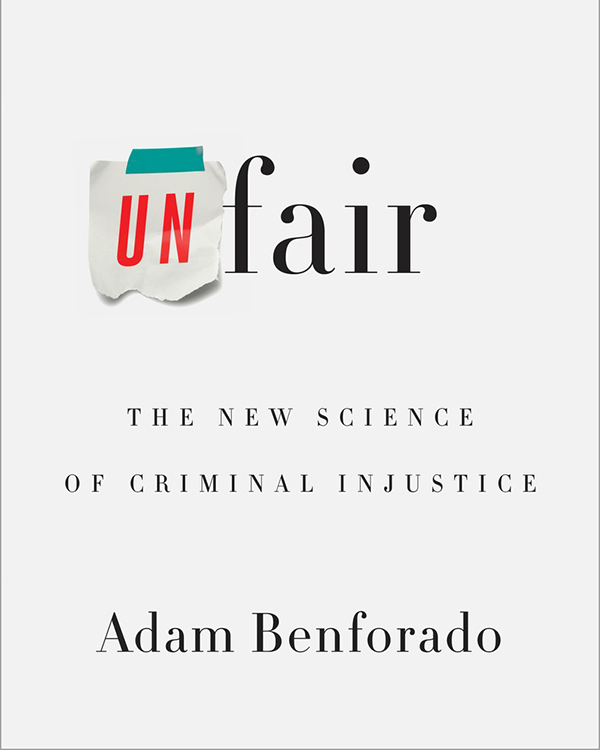“Unfair: The New Science of Criminal Injustice,” Professor Adam Benforado’s new book, finds plenty of blame to go around for wrongful arrests and convictions.
The book, released on June 16 by Crown, explores underlying flaws in the legal system that flow from human prejudices that affect everything from the ways police are trained to question suspects to the ways jurors assess witness credibility.

“People think the problem is bigoted police officers and bad-apple prosecutors, when the real problem is much deeper,” Benforado said. “The real problem has to do with human psychology.”
Informed by Benforado’s scholarship in the field of law and mind science, the book explores the mental processes and flawed assumptions that affect victims, eyewitnesses, suspects, detectives, judges and juries. The book explores the myriad ways that pervasive, unrecognized biases drive false confessions, wrongful convictions and other injustices.
Benforado, who received a National Science Foundation grant to study motivations for punishment, proposes reforms including an eventual move away from live trials and toward virtual trials to reduce the impact of prejudice.
The severity and scope of the problems inspired Benforado to write a book that would appeal to non-academic audiences.
“It seemed to be something that people in the broader society needed to know,” he said. “There’s a real opportunity for meaningful reform. My book is telling a different story than the one we’re getting in mainstream media.”
The book has generated considerable buzz, highlighted by Kirkus Reviews, Library Journal, Goodreads and Amazon.
Interviewed by National Public Radio host Scott Simon on June 13, Benforado said that while realizing the potential for virtual trials is many years off, the existing criminal justice system is “based on untested assumptions about human behavior.”
Benforado explored themes from the book in opinion essays published June 14 in The New York Times and June 16 in The Atlantic.
Benforado will discuss the book and his research at a public event at 7:30 pm on June 30 at the Free Library of Philadelphia.